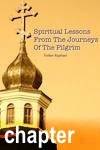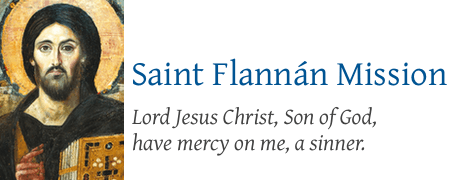 What are the signs of true inner prayer? What are its fruits? How do we deal with visions during prayer?
What are the signs of true inner prayer? What are its fruits? How do we deal with visions during prayer?
Dear beloved,
Our pilgrim has been traveling with a blind man for a while, and both of them prayed together, while the pilgrim read the Philokalia to the blind man. The pilgrim then taught a way to approach the Jesus Prayer to the blind man.
The pilgrim asked the blind man to visualize the heart within his chest cavity, and listen with his ears every heart beat. Then repeat the Jesus Prayer in tandem with the heartbeat. With the first heartbeat, mentally (or verbally) say “Lord”. The second beat, say “Jesus”, the third beat, “Christ”, and so on. Then regulate the breathing in tandem with the Prayer, with “Lord Jesus Christ” through an inhalation, and “have mercy on me” with exhalation. The pilgrim then mentioned that soon, if one persisted with such prayer, one should feel a tender soreness and warmth in the heart.
However, the pilgrim warned the blind man that unlike other methods, the Orthodox prayer must be void of imagination or visions. One must reject all manners of created imagination, according to the teachings of the Holy Fathers, who said that imagination can lead to prelest (spiritual deception).
Shortly after, the blind man suddenly said to the pilgrim that he saw a vision of a nearby church burning. The pilgrim told the blind man to leave aside all imaginations, which are temptations. When both of them walked to the village, they saw the church burned down. The pilgrim told the blind man that even as the vision came true, one must NOT see visions as a direct correlation to Divine grace, but as natural occurrences that may be led by carnal passions. The blind man was humbled by the pilgrim’s teachings, and went back to prayer with gratefulness.
Saint John Cassian the Roman said, “We will most easily come to a precise knowledge of true discernment if we follow the paths of our elders, if we do nothing novel, and if we do not presume to decide anything on the basis of our own private judgment.”
The two people parted company at Tobolsk while the pilgrim continued on his journey.
The pilgrim continued to pray unceasingly, and soon, he experienced blessed joy and tranquility, as if in the Kingdom of Heaven. His perspective of surroundings and people began to change. He started to see all things, people, flora, and fauna, with a positive light, that all of these things were sealed in the Name of Jesus Christ. He began to feel as though his body carried no physical weight.
Saint John of Konstadt said, “Love every person despite his falling into sin. Look past the person’s sins, and remember that the foundation of the person is the same – the image of God”.
The fruits of our prayerful labors can be discerned thus. Do we love all of God’s creation – regardless of race, religion, or condition (Genesis 1:31, Job 41:11)? Do we love God’s other creations – plants, animals, earth, etc (Leviticus 26:3-4)? Do we become blind to judging others?
But yet, just as he admonished the blind man on visions, the pilgrim too, began to realize that spiritual consolations are not to be indulged. When he felt anxiety and fear later on, he would pray more seriously, and thoughts of fear subsided.
For us, we must also remember that God’s will is to temper us, as a jeweler, to forge strength and beauty out of us (Ephesians 2:10). God’s will is not to satiate us or to placate us that will turn us into sloppy creatures. Only the devil will attempt to satiate our lusts and passions, and to pacify us with easy journeys.
Let us pray unto God, to lead us into true inner prayer, and grant us Divine Mercy not to fall into prelest:
“Lord Jesus Christ, Son of God, have mercy on me, a sinner.”
Book Index | Prev: True humility | Next: Responsibilities, fears & time
